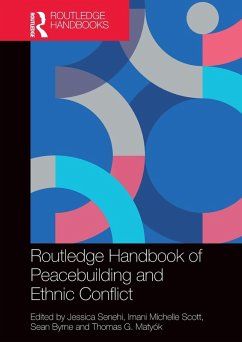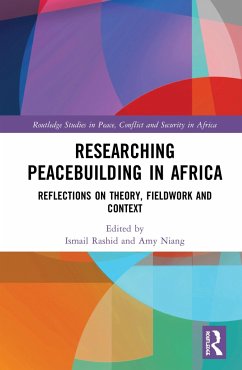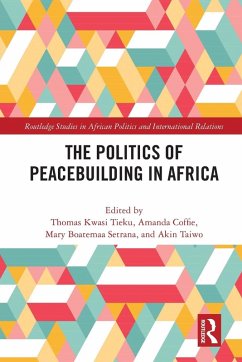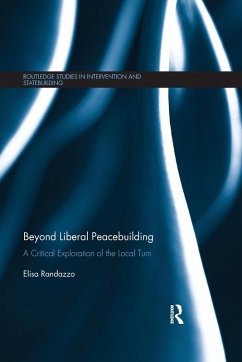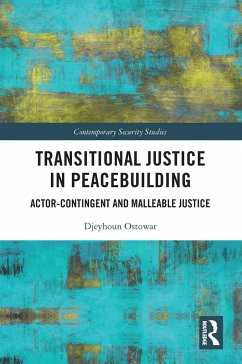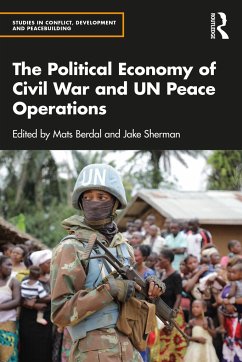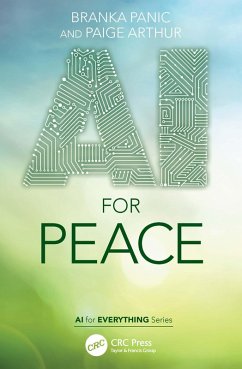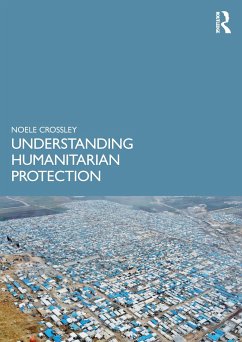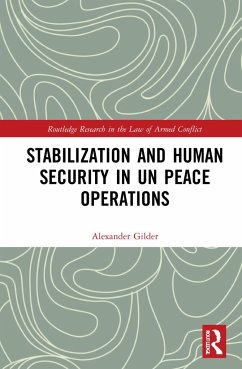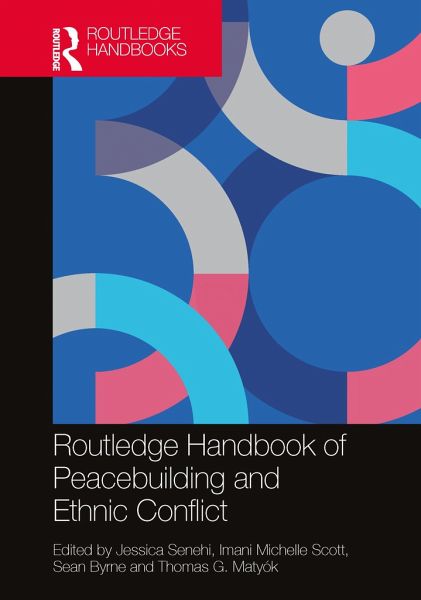
Routledge Handbook of Peacebuilding and Ethnic Conflict
Versandkostenfrei!
Versandfertig in 6-10 Tagen
245,99 €
inkl. MwSt.

PAYBACK Punkte
123 °P sammeln!
This handbook offers a comprehensive analysis of peacebuilding in ethnic conflicts, with attention to theory, peacebuilder roles, making sense of the past and shaping the future, as well as case studies and approaches.Comprising 28 chapters that present key insights on peacebuilding in ethnic conflicts, the volume has implications for teaching and training, as well as for practice and policy. The handbook is divided into four thematic parts. Part 1 focuses on critical dimensions of ethnic conflicts, including root causes, gender, external involvements, emancipatory peacebuilding, hatred as a p...
This handbook offers a comprehensive analysis of peacebuilding in ethnic conflicts, with attention to theory, peacebuilder roles, making sense of the past and shaping the future, as well as case studies and approaches.
Comprising 28 chapters that present key insights on peacebuilding in ethnic conflicts, the volume has implications for teaching and training, as well as for practice and policy. The handbook is divided into four thematic parts. Part 1 focuses on critical dimensions of ethnic conflicts, including root causes, gender, external involvements, emancipatory peacebuilding, hatred as a public health issue, environmental issues, American nationalism, and the impact of the COVID-19 pandemic. Part 2 focuses on peacebuilders' roles, including Indigenous peacemaking, nonviolent accompaniment, peace leadership in the military, interreligious peacebuilders, local women, and young people. Part 3 addresses the past and shaping of the future, including a discussion of public memory, heritage rights and monuments, refugees, trauma and memory, aggregated trauma in the African-American community, exhumations after genocide, and a healing-centered approach to conflict. Part 4 presents case studies on Sri Lanka's postwar reconciliation process, peacebuilding in Mindanao, the transformative peace negotiation in Aceh and Bougainville, external economic aid for peacebuilding in Northern Ireland, Indigenous and local peacemaking, and a continuum of peacebuilding focal points. The handbook offers perspectives on the breadth and significance of peacebuilding work in ethnic conflicts throughout the world.
This volume will be of much interest to students of peacebuilding, ethnic conflict, security studies, and international relations.
Comprising 28 chapters that present key insights on peacebuilding in ethnic conflicts, the volume has implications for teaching and training, as well as for practice and policy. The handbook is divided into four thematic parts. Part 1 focuses on critical dimensions of ethnic conflicts, including root causes, gender, external involvements, emancipatory peacebuilding, hatred as a public health issue, environmental issues, American nationalism, and the impact of the COVID-19 pandemic. Part 2 focuses on peacebuilders' roles, including Indigenous peacemaking, nonviolent accompaniment, peace leadership in the military, interreligious peacebuilders, local women, and young people. Part 3 addresses the past and shaping of the future, including a discussion of public memory, heritage rights and monuments, refugees, trauma and memory, aggregated trauma in the African-American community, exhumations after genocide, and a healing-centered approach to conflict. Part 4 presents case studies on Sri Lanka's postwar reconciliation process, peacebuilding in Mindanao, the transformative peace negotiation in Aceh and Bougainville, external economic aid for peacebuilding in Northern Ireland, Indigenous and local peacemaking, and a continuum of peacebuilding focal points. The handbook offers perspectives on the breadth and significance of peacebuilding work in ethnic conflicts throughout the world.
This volume will be of much interest to students of peacebuilding, ethnic conflict, security studies, and international relations.





